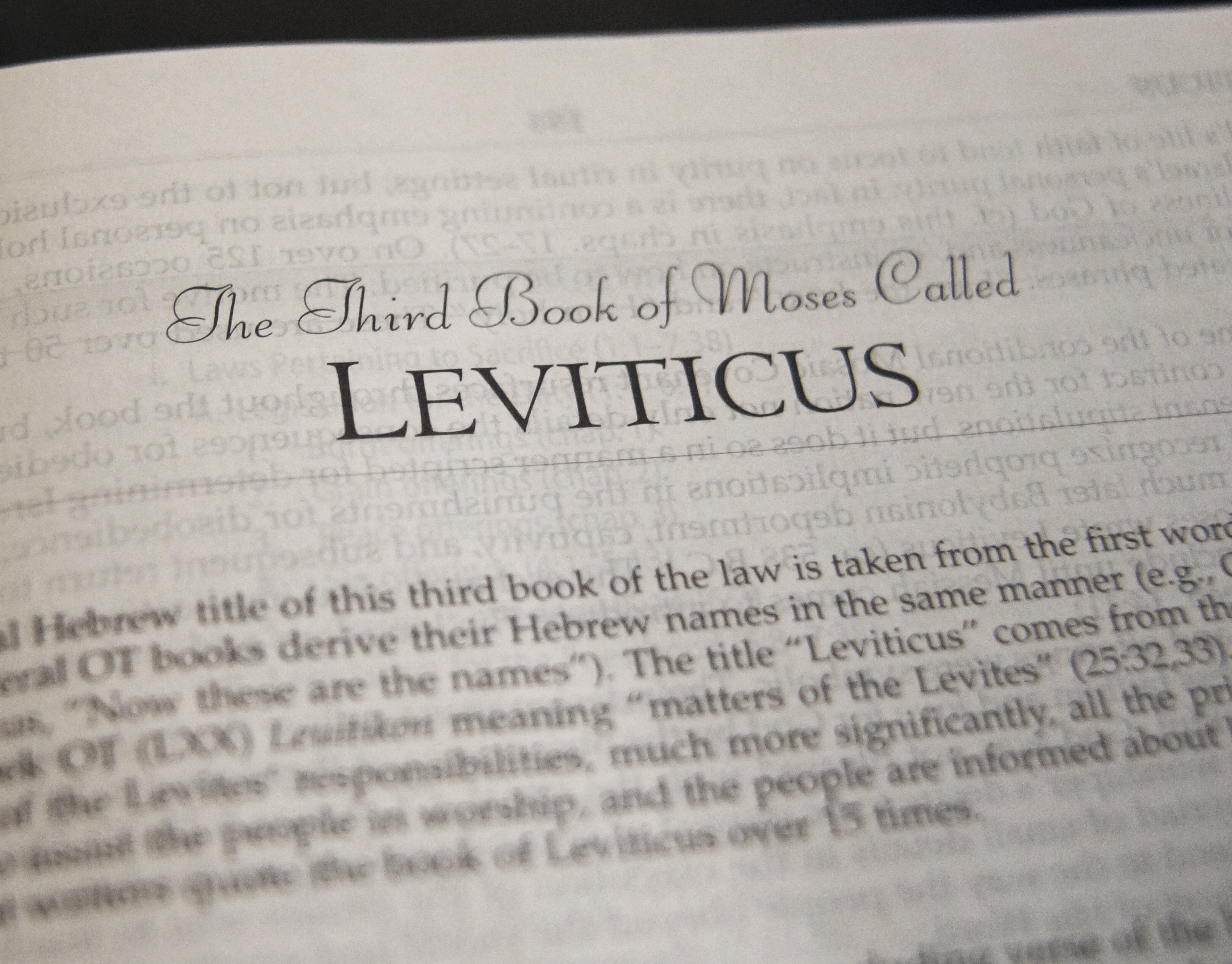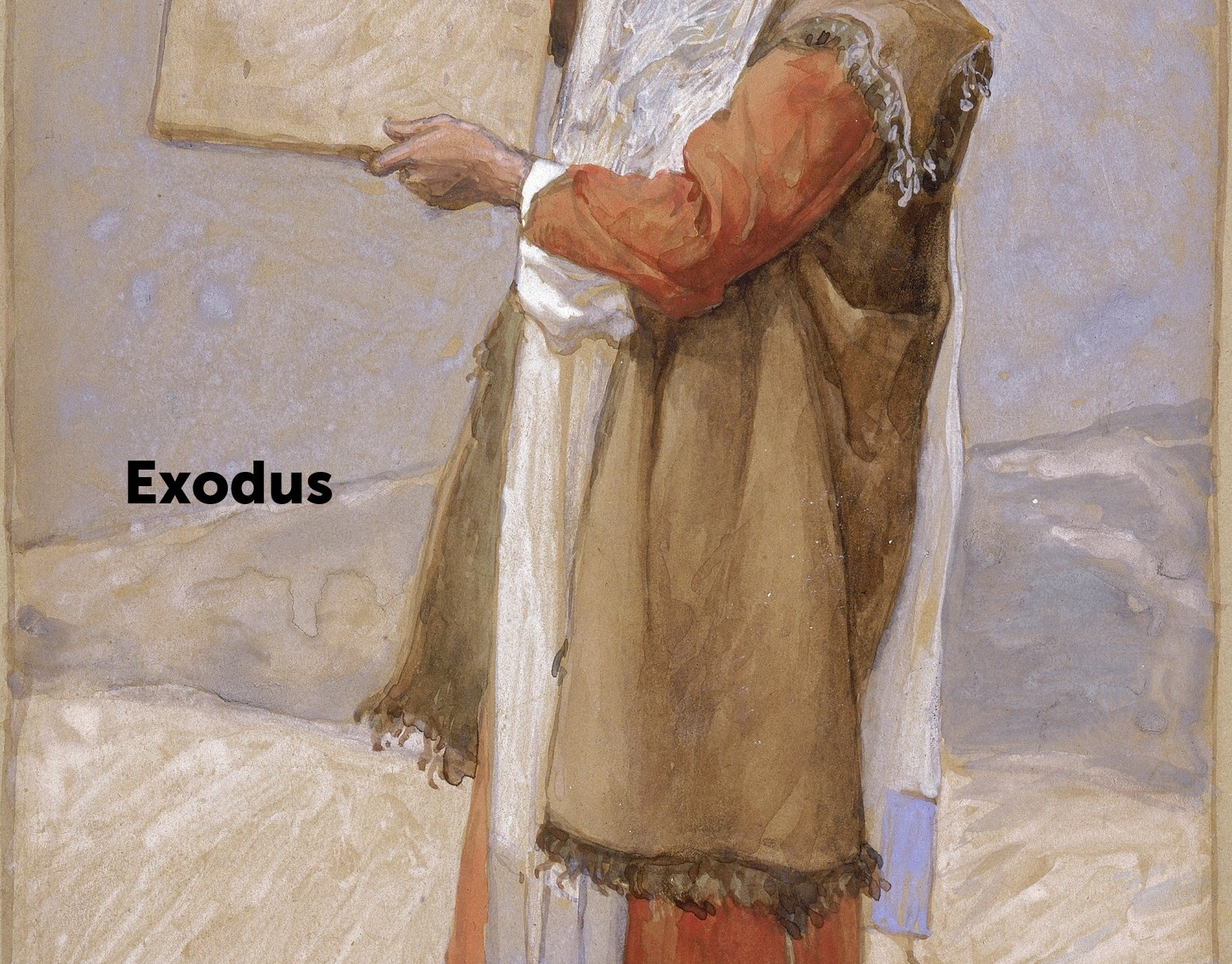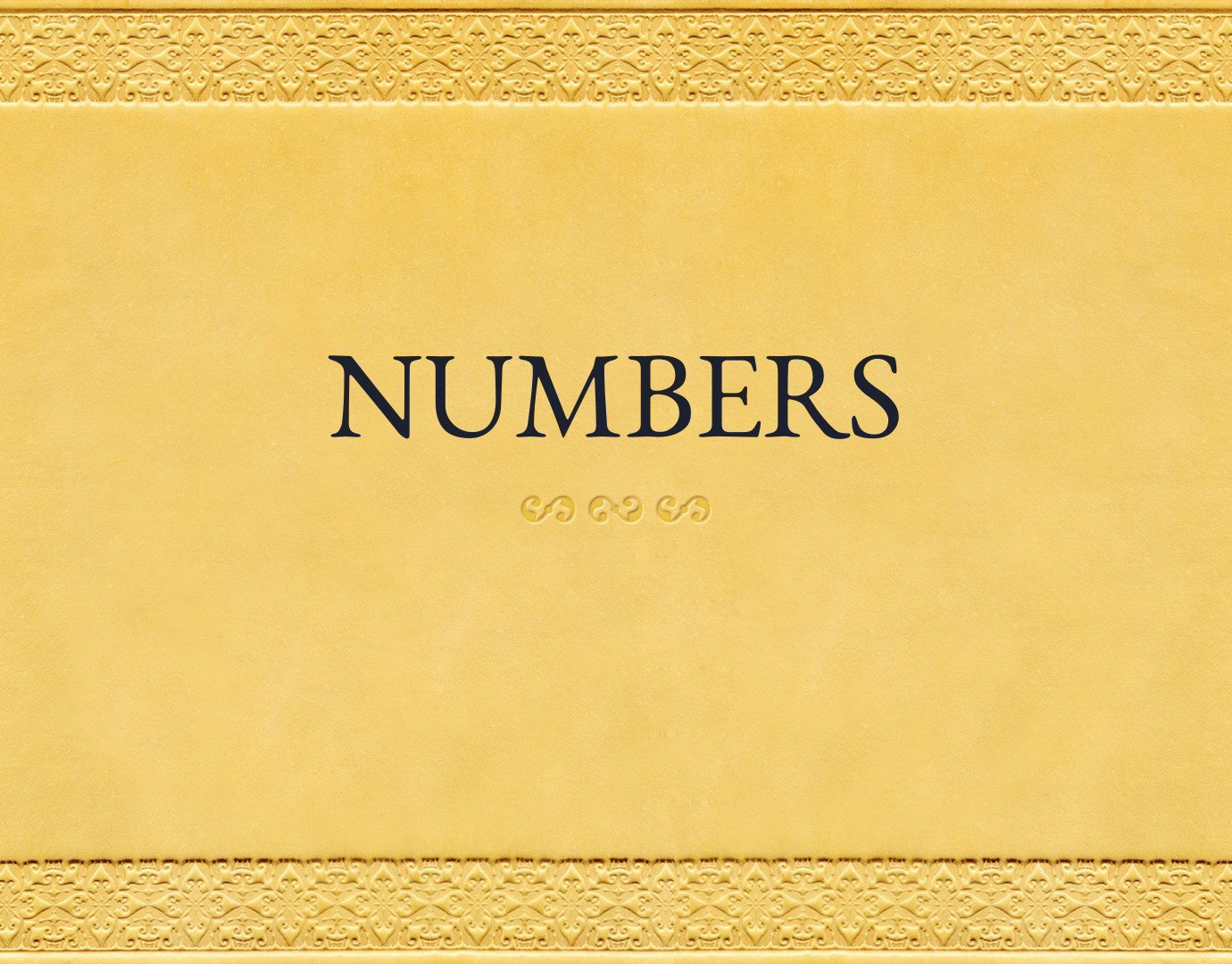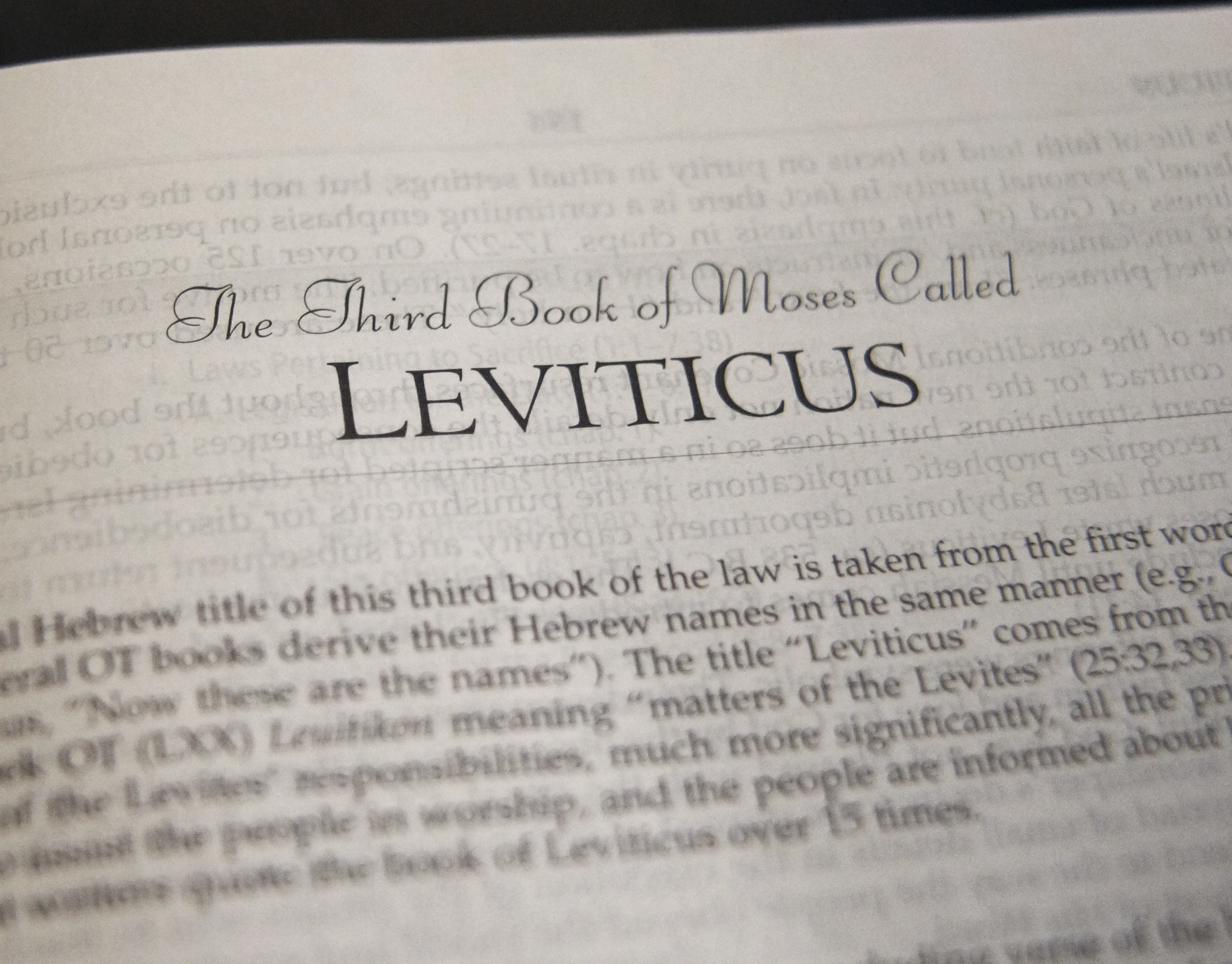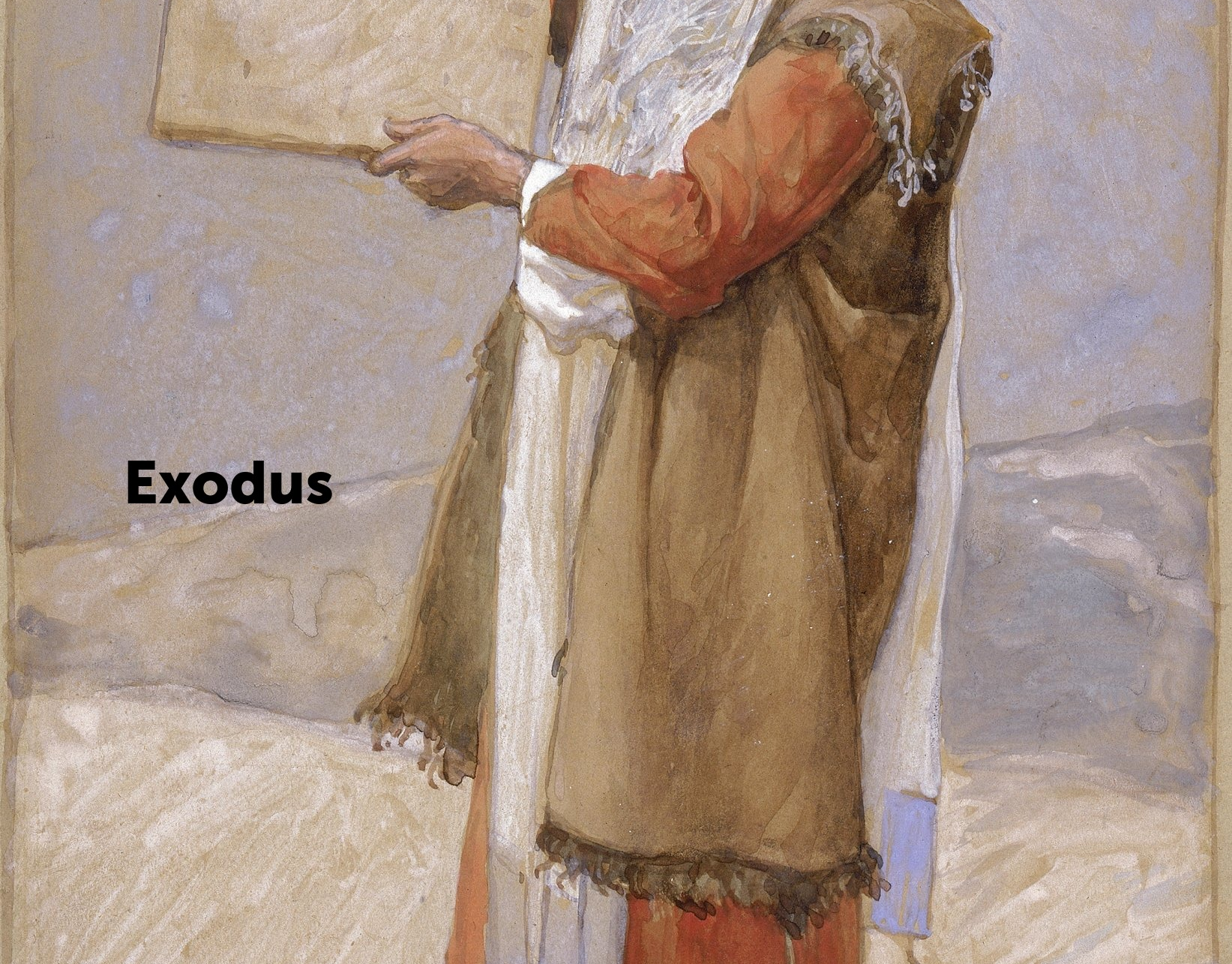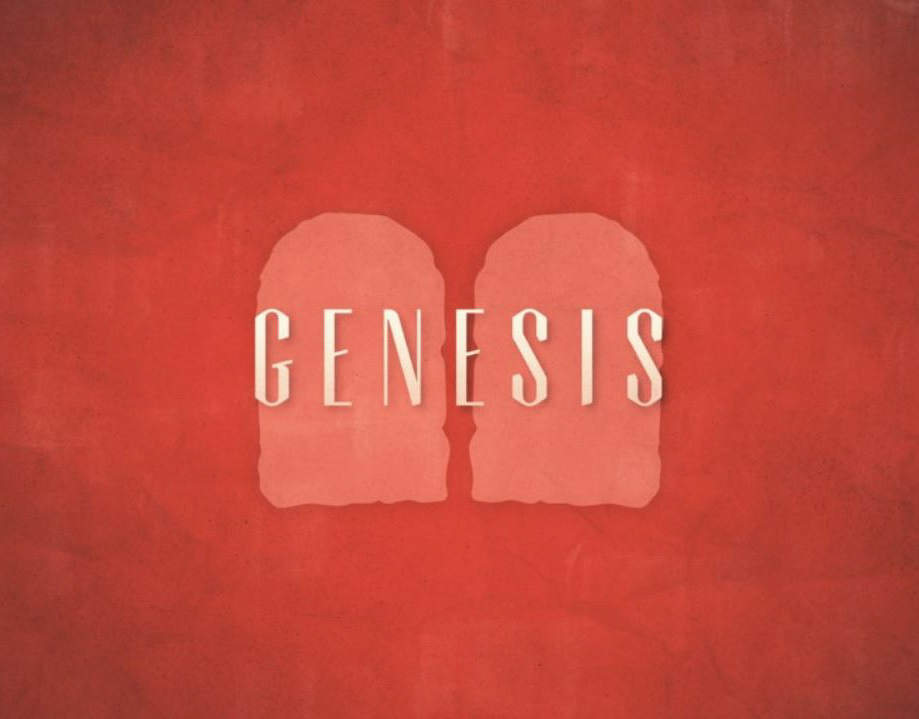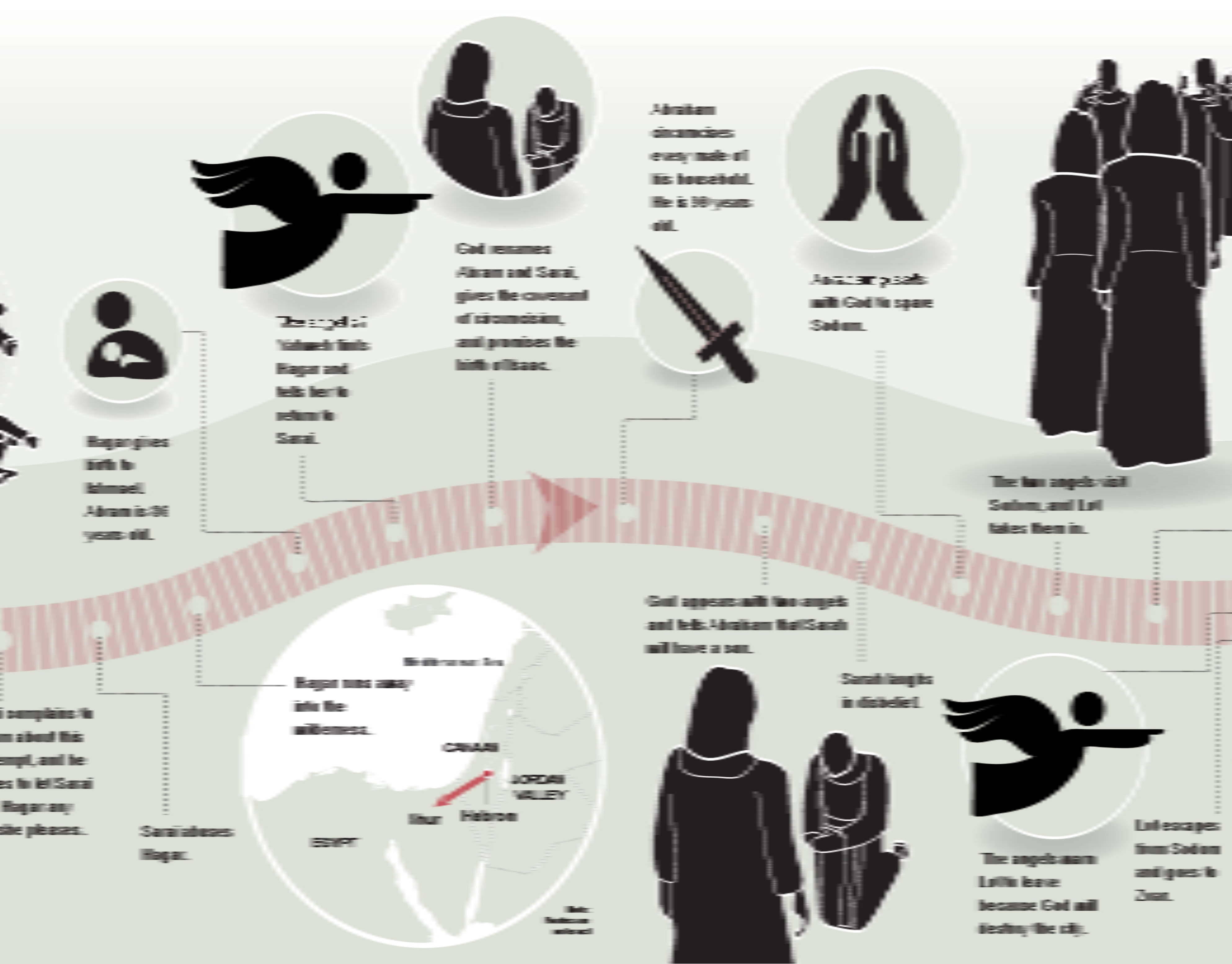Leviticus 21-25
Holiness and the Priests
21 And the Lord said to Moses, “Speak to the priests, the sons of Aaron, and say to them, No one shall make himself unclean for the dead among his people, 2 except for his closest relatives, his mother, his father, his son, his daughter, his brother, 3 or his virgin sister (who is near to him because she has had no husband; for her he may make himself unclean). 4 He shall not make himself unclean as a husband among his people and so profane himself. 5 They shall not make bald patches on their heads, nor shave off the edges of their beards, nor make any cuts on their body. 6 They shall be holy to their God and not profane the name of their God. For they offer the Lord’s food offerings, the bread of their God; therefore they shall be holy. 7 They shall not marry a prostitute or a woman who has been defiled, neither shall they marry a woman divorced from her husband, for the priest is holy to his God. 8 You shall sanctify him, for he offers the bread of your God. He shall be holy to you, for I, the Lord, who sanctify you, am holy. 9 And the daughter of any priest, if she profanes herself by whoring, profanes her father; she shall be burned with fire.
10 “The priest who is chief among his brothers, on whose head the anointing oil is poured and who has been consecrated to wear the garments, shall not let the hair of his head hang loose nor tear his clothes. 11 He shall not go in to any dead bodies nor make himself unclean, even for his father or for his mother. 12 He shall not go out of the sanctuary, lest he profane the sanctuary of his God, for the consecration of the anointing oil of his God is on him: I am the Lord. 13 And he shall take a wife in her virginity. 14 A widow, or a divorced woman, or a woman who has been defiled, or a prostitute, these he shall not marry. But he shall take as his wife a virgin of his own people, 15 that he may not profane his offspring among his people, for I am the Lord who sanctifies him.”
16 And the Lord spoke to Moses, saying, 17 “Speak to Aaron, saying, None of your offspring throughout their generations who has a blemish may approach to offer the bread of his God. 18 For no one who has a blemish shall draw near, a man blind or lame, or one who has a mutilated face or a limb too long, 19 or a man who has an injured foot or an injured hand, 20 or a hunchback or a dwarf or a man with a defect in his sight or an itching disease or scabs or crushed testicles. 21 No man of the offspring of Aaron the priest who has a blemish shall come near to offer the Lord’s food offerings; since he has a blemish, he shall not come near to offer the bread of his God. 22 He may eat the bread of his God, both of the most holy and of the holy things, 23 but he shall not go through the veil or approach the altar, because he has a blemish, that he may not profane my sanctuaries, for I am the Lord who sanctifies them.” 24 So Moses spoke to Aaron and to his sons and to all the people of Israel.
22 And the Lord spoke to Moses, saying, 2 “Speak to Aaron and his sons so that they abstain from the holy things of the people of Israel, which they dedicate to me, so that they do not profane my holy name: I am the Lord. 3 Say to them, ‘If any one of all your offspring throughout your generations approaches the holy things that the people of Israel dedicate to the Lord, while he has an uncleanness, that person shall be cut off from my presence: I am the Lord. 4 None of the offspring of Aaron who has a leprous disease or a discharge may eat of the holy things until he is clean. Whoever touches anything that is unclean through contact with the dead or a man who has had an emission of semen, 5 and whoever touches a swarming thing by which he may be made unclean or a person from whom he may take uncleanness, whatever his uncleanness may be— 6 the person who touches such a thing shall be unclean until the evening and shall not eat of the holy things unless he has bathed his body in water. 7 When the sun goes down he shall be clean, and afterward he may eat of the holy things, because they are his food. 8 He shall not eat what dies of itself or is torn by beasts, and so make himself unclean by it: I am the Lord.’ 9 They shall therefore keep my charge, lest they bear sin for it and die thereby when they profane it: I am the Lord who sanctifies them.
10 “A lay person shall not eat of a holy thing; no foreign guest of the priest or hired worker shall eat of a holy thing, 11 but if a priest buys a slave as his property for money, the slave may eat of it, and anyone born in his house may eat of his food. 12 If a priest’s daughter marries a layman, she shall not eat of the contribution of the holy things. 13 But if a priest’s daughter is widowed or divorced and has no child and returns to her father’s house, as in her youth, she may eat of her father’s food; yet no lay person shall eat of it. 14 And if anyone eats of a holy thing unintentionally, he shall add the fifth of its value to it and give the holy thing to the priest. 15 They shall not profane the holy things of the people of Israel, which they contribute to the Lord, 16 and so cause them to bear iniquity and guilt, by eating their holy things: for I am the Lord who sanctifies them.”
Acceptable Offerings
17 And the Lord spoke to Moses, saying, 18 “Speak to Aaron and his sons and all the people of Israel and say to them, When any one of the house of Israel or of the sojourners in Israel presents a burnt offering as his offering, for any of their vows or freewill offerings that they offer to the Lord, 19 if it is to be accepted for you it shall be a male without blemish, of the bulls or the sheep or the goats. 20 You shall not offer anything that has a blemish, for it will not be acceptable for you. 21 And when anyone offers a sacrifice of peace offerings to the Lord to fulfill a vow or as a freewill offering from the herd or from the flock, to be accepted it must be perfect; there shall be no blemish in it. 22 Animals blind or disabled or mutilated or having a discharge or an itch or scabs you shall not offer to the Lord or give them to the Lord as a food offering on the altar. 23 You may present a bull or a lamb that has a part too long or too short for a freewill offering, but for a vow offering it cannot be accepted. 24 Any animal that has its testicles bruised or crushed or torn or cut you shall not offer to the Lord; you shall not do it within your land, 25 neither shall you offer as the bread of your God any such animals gotten from a foreigner. Since there is a blemish in them, because of their mutilation, they will not be accepted for you.”
26 And the Lord spoke to Moses, saying, 27 “When an ox or sheep or goat is born, it shall remain seven days with its mother, and from the eighth day on it shall be acceptable as a food offering to the Lord. 28 But you shall not kill an ox or a sheep and her young in one day. 29 And when you sacrifice a sacrifice of thanksgiving to the Lord, you shall sacrifice it so that you may be accepted. 30 It shall be eaten on the same day; you shall leave none of it until morning: I am the Lord.
31 “So you shall keep my commandments and do them: I am the Lord. 32 And you shall not profane my holy name, that I may be sanctified among the people of Israel. I am the Lord who sanctifies you, 33 who brought you out of the land of Egypt to be your God: I am the Lord.”
Feasts of the Lord
23 The Lord spoke to Moses, saying, 2 “Speak to the people of Israel and say to them, These are the appointed feasts of the Lord that you shall proclaim as holy convocations; they are my appointed feasts.
The Sabbath
3 “Six days shall work be done, but on the seventh day is a Sabbath of solemn rest, a holy convocation. You shall do no work. It is a Sabbath to the Lord in all your dwelling places.
The Passover
4 “These are the appointed feasts of the Lord, the holy convocations, which you shall proclaim at the time appointed for them. 5 In the first month, on the fourteenth day of the month at twilight, is the Lord’s Passover. 6 And on the fifteenth day of the same month is the Feast of Unleavened Bread to the Lord; for seven days you shall eat unleavened bread. 7 On the first day you shall have a holy convocation; you shall not do any ordinary work. 8 But you shall present a food offering to the Lord for seven days. On the seventh day is a holy convocation; you shall not do any ordinary work.”
The Feast of Firstfruits
9 And the Lord spoke to Moses, saying, 10 “Speak to the people of Israel and say to them, When you come into the land that I give you and reap its harvest, you shall bring the sheaf of the firstfruits of your harvest to the priest, 11 and he shall wave the sheaf before the Lord, so that you may be accepted. On the day after the Sabbath the priest shall wave it. 12 And on the day when you wave the sheaf, you shall offer a male lamb a year old without blemish as a burnt offering to the Lord. 13 And the grain offering with it shall be two tenths of an ephah of fine flour mixed with oil, a food offering to the Lord with a pleasing aroma, and the drink offering with it shall be of wine, a fourth of a hin. 14 And you shall eat neither bread nor grain parched or fresh until this same day, until you have brought the offering of your God: it is a statute forever throughout your generations in all your dwellings.
The Feast of Weeks
15 “You shall count seven full weeks from the day after the Sabbath, from the day that you brought the sheaf of the wave offering. 16 You shall count fifty days to the day after the seventh Sabbath. Then you shall present a grain offering of new grain to the Lord. 17 You shall bring from your dwelling places two loaves of bread to be waved, made of two tenths of an ephah. They shall be of fine flour, and they shall be baked with leaven, as firstfruits to the Lord. 18 And you shall present with the bread seven lambs a year old without blemish, and one bull from the herd and two rams. They shall be a burnt offering to the Lord, with their grain offering and their drink offerings, a food offering with a pleasing aroma to the Lord. 19 And you shall offer one male goat for a sin offering, and two male lambs a year old as a sacrifice of peace offerings. 20 And the priest shall wave them with the bread of the firstfruits as a wave offering before the Lord, with the two lambs. They shall be holy to the Lord for the priest. 21 And you shall make a proclamation on the same day. You shall hold a holy convocation. You shall not do any ordinary work. It is a statute forever in all your dwelling places throughout your generations.
22 “And when you reap the harvest of your land, you shall not reap your field right up to its edge, nor shall you gather the gleanings after your harvest. You shall leave them for the poor and for the sojourner: I am the Lord your God.”
The Feast of Trumpets
23 And the Lord spoke to Moses, saying, 24 “Speak to the people of Israel, saying, In the seventh month, on the first day of the month, you shall observe a day of solemn rest, a memorial proclaimed with blast of trumpets, a holy convocation. 25 You shall not do any ordinary work, and you shall present a food offering to the Lord.”
The Day of Atonement
26 And the Lord spoke to Moses, saying, 27 “Now on the tenth day of this seventh month is the Day of Atonement. It shall be for you a time of holy convocation, and you shall afflict yourselves and present a food offering to the Lord. 28 And you shall not do any work on that very day, for it is a Day of Atonement, to make atonement for you before the Lord your God. 29 For whoever is not afflicted on that very day shall be cut off from his people. 30 And whoever does any work on that very day, that person I will destroy from among his people. 31 You shall not do any work. It is a statute forever throughout your generations in all your dwelling places. 32 It shall be to you a Sabbath of solemn rest, and you shall afflict yourselves. On the ninth day of the month beginning at evening, from evening to evening shall you keep your Sabbath.”
The Feast of Booths
33 And the Lord spoke to Moses, saying, 34 “Speak to the people of Israel, saying, On the fifteenth day of this seventh month and for seven days is the Feast of Booths to the Lord. 35 On the first day shall be a holy convocation; you shall not do any ordinary work. 36 For seven days you shall present food offerings to the Lord. On the eighth day you shall hold a holy convocation and present a food offering to the Lord. It is a solemn assembly; you shall not do any ordinary work.
37 “These are the appointed feasts of the Lord, which you shall proclaim as times of holy convocation, for presenting to the Lord food offerings, burnt offerings and grain offerings, sacrifices and drink offerings, each on its proper day, 38 besides the Lord’s Sabbaths and besides your gifts and besides all your vow offerings and besides all your freewill offerings, which you give to the Lord.
39 “On the fifteenth day of the seventh month, when you have gathered in the produce of the land, you shall celebrate the feast of the Lord seven days. On the first day shall be a solemn rest, and on the eighth day shall be a solemn rest. 40 And you shall take on the first day the fruit of splendid trees, branches of palm trees and boughs of leafy trees and willows of the brook, and you shall rejoice before the Lord your God seven days. 41 You shall celebrate it as a feast to the Lord for seven days in the year. It is a statute forever throughout your generations; you shall celebrate it in the seventh month. 42 You shall dwell in booths for seven days. All native Israelites shall dwell in booths, 43 that your generations may know that I made the people of Israel dwell in booths when I brought them out of the land of Egypt: I am the Lord your God.”
44 Thus Moses declared to the people of Israel the appointed feasts of the Lord.
The Lamps
24 The Lord spoke to Moses, saying, 2 “Command the people of Israel to bring you pure oil from beaten olives for the lamp, that a light may be kept burning regularly. 3 Outside the veil of the testimony, in the tent of meeting, Aaron shall arrange it from evening to morning before the Lord regularly. It shall be a statute forever throughout your generations. 4 He shall arrange the lamps on the lampstand of pure gold before the Lord regularly.
Bread for the Tabernacle
5 “You shall take fine flour and bake twelve loaves from it; two tenths of an ephah shall be in each loaf. 6 And you shall set them in two piles, six in a pile, on the table of pure gold before the Lord. 7 And you shall put pure frankincense on each pile, that it may go with the bread as a memorial portion as a food offering to the Lord. 8 Every Sabbath day Aaron shall arrange it before the Lord regularly; it is from the people of Israel as a covenant forever. 9 And it shall be for Aaron and his sons, and they shall eat it in a holy place, since it is for him a most holy portion out of the Lord’s food offerings, a perpetual due.”
Punishment for Blasphemy
10 Now an Israelite woman’s son, whose father was an Egyptian, went out among the people of Israel. And the Israelite woman’s son and a man of Israel fought in the camp, 11 and the Israelite woman’s son blasphemed the Name, and cursed. Then they brought him to Moses. His mother’s name was Shelomith, the daughter of Dibri, of the tribe of Dan. 12 And they put him in custody, till the will of the Lord should be clear to them.
13 Then the Lord spoke to Moses, saying, 14 “Bring out of the camp the one who cursed, and let all who heard him lay their hands on his head, and let all the congregation stone him. 15 And speak to the people of Israel, saying, Whoever curses his God shall bear his sin. 16 Whoever blasphemes the name of the Lord shall surely be put to death. All the congregation shall stone him. The sojourner as well as the native, when he blasphemes the Name, shall be put to death.
An Eye for an Eye
17 “Whoever takes a human life shall surely be put to death. 18 Whoever takes an animal’s life shall make it good, life for life. 19 If anyone injures his neighbor, as he has done it shall be done to him, 20 fracture for fracture, eye for eye, tooth for tooth; whatever injury he has given a person shall be given to him. 21 Whoever kills an animal shall make it good, and whoever kills a person shall be put to death. 22 You shall have the same rule for the sojourner and for the native, for I am the Lord your God.” 23 So Moses spoke to the people of Israel, and they brought out of the camp the one who had cursed and stoned him with stones. Thus the people of Israel did as the Lord commanded Moses.
The Sabbath Year
25 The Lord spoke to Moses on Mount Sinai, saying, 2 “Speak to the people of Israel and say to them, When you come into the land that I give you, the land shall keep a Sabbath to the Lord. 3 For six years you shall sow your field, and for six years you shall prune your vineyard and gather in its fruits, 4 but in the seventh year there shall be a Sabbath of solemn rest for the land, a Sabbath to the Lord. You shall not sow your field or prune your vineyard. 5 You shall not reap what grows of itself in your harvest, or gather the grapes of your undressed vine. It shall be a year of solemn rest for the land. 6 The Sabbath of the land shall provide food for you, for yourself and for your male and female slaves and for your hired worker and the sojourner who lives with you, 7 and for your cattle and for the wild animals that are in your land: all its yield shall be for food.
The Year of Jubilee
8 “You shall count seven weeks of years, seven times seven years, so that the time of the seven weeks of years shall give you forty-nine years. 9 Then you shall sound the loud trumpet on the tenth day of the seventh month. On the Day of Atonement you shall sound the trumpet throughout all your land. 10 And you shall consecrate the fiftieth year, and proclaim liberty throughout the land to all its inhabitants. It shall be a jubilee for you, when each of you shall return to his property and each of you shall return to his clan. 11 That fiftieth year shall be a jubilee for you; in it you shall neither sow nor reap what grows of itself nor gather the grapes from the undressed vines. 12 For it is a jubilee. It shall be holy to you. You may eat the produce of the field.
13 “In this year of jubilee each of you shall return to his property. 14 And if you make a sale to your neighbor or buy from your neighbor, you shall not wrong one another. 15 You shall pay your neighbor according to the number of years after the jubilee, and he shall sell to you according to the number of years for crops. 16 If the years are many, you shall increase the price, and if the years are few, you shall reduce the price, for it is the number of the crops that he is selling to you. 17 You shall not wrong one another, but you shall fear your God, for I am the Lord your God.
18 “Therefore you shall do my statutes and keep my rules and perform them, and then you will dwell in the land securely. 19 The land will yield its fruit, and you will eat your fill and dwell in it securely. 20 And if you say, ‘What shall we eat in the seventh year, if we may not sow or gather in our crop?’ 21 I will command my blessing on you in the sixth year, so that it will produce a crop sufficient for three years. 22 When you sow in the eighth year, you will be eating some of the old crop; you shall eat the old until the ninth year, when its crop arrives.
Redemption of Property
23 “The land shall not be sold in perpetuity, for the land is mine. For you are strangers and sojourners with me. 24 And in all the country you possess, you shall allow a redemption of the land.
25 “If your brother becomes poor and sells part of his property, then his nearest redeemer shall come and redeem what his brother has sold. 26 If a man has no one to redeem it and then himself becomes prosperous and finds sufficient means to redeem it, 27 let him calculate the years since he sold it and pay back the balance to the man to whom he sold it, and then return to his property. 28 But if he does not have sufficient means to recover it, then what he sold shall remain in the hand of the buyer until the year of jubilee. In the jubilee it shall be released, and he shall return to his property.
29 “If a man sells a dwelling house in a walled city, he may redeem it within a year of its sale. For a full year he shall have the right of redemption. 30 If it is not redeemed within a full year, then the house in the walled city shall belong in perpetuity to the buyer, throughout his generations; it shall not be released in the jubilee. 31 But the houses of the villages that have no wall around them shall be classified with the fields of the land. They may be redeemed, and they shall be released in the jubilee. 32 As for the cities of the Levites, the Levites may redeem at any time the houses in the cities they possess. 33 And if one of the Levites exercises his right of redemption, then the house that was sold in a city they possess shall be released in the jubilee. For the houses in the cities of the Levites are their possession among the people of Israel. 34 But the fields of pastureland belonging to their cities may not be sold, for that is their possession forever.
Kindness for Poor Brothers
35 “If your brother becomes poor and cannot maintain himself with you, you shall support him as though he were a stranger and a sojourner, and he shall live with you. 36 Take no interest from him or profit, but fear your God, that your brother may live beside you. 37 You shall not lend him your money at interest, nor give him your food for profit. 38 I am the Lord your God, who brought you out of the land of Egypt to give you the land of Canaan, and to be your God.
39 “If your brother becomes poor beside you and sells himself to you, you shall not make him serve as a slave: 40 he shall be with you as a hired worker and as a sojourner. He shall serve with you until the year of the jubilee. 41 Then he shall go out from you, he and his children with him, and go back to his own clan and return to the possession of his fathers. 42 For they are my servants, whom I brought out of the land of Egypt; they shall not be sold as slaves. 43 You shall not rule over him ruthlessly but shall fear your God. 44 As for your male and female slaves whom you may have: you may buy male and female slaves from among the nations that are around you. 45 You may also buy from among the strangers who sojourn with you and their clans that are with you, who have been born in your land, and they may be your property. 46 You may bequeath them to your sons after you to inherit as a possession forever. You may make slaves of them, but over your brothers the people of Israel you shall not rule, one over another ruthlessly.
Redeeming a Poor Man
47 “If a stranger or sojourner with you becomes rich, and your brother beside him becomes poor and sells himself to the stranger or sojourner with you or to a member of the stranger’s clan, 48 then after he is sold he may be redeemed. One of his brothers may redeem him, 49 or his uncle or his cousin may redeem him, or a close relative from his clan may redeem him. Or if he grows rich he may redeem himself. 50 He shall calculate with his buyer from the year when he sold himself to him until the year of jubilee, and the price of his sale shall vary with the number of years. The time he was with his owner shall be rated as the time of a hired worker. 51 If there are still many years left, he shall pay proportionately for his redemption some of his sale price. 52 If there remain but a few years until the year of jubilee, he shall calculate and pay for his redemption in proportion to his years of service. 53 He shall treat him as a worker hired year by year. He shall not rule ruthlessly over him in your sight. 54 And if he is not redeemed by these means, then he and his children with him shall be released in the year of jubilee. 55 For it is to me that the people of Israel are servants. They are my servants whom I brought out of the land of Egypt: I am the Lord your God. [1]
Thoughts:
No matter how one looks at our Levitcus readings today, one of the major themes that call out to me is “I am the Lord who sanctifies.” This makes it clear that no matter the sacrifice and no matter the work it is God who sanctifies us. Whether it is a permanent or temporary blemish we are not perfect, yet God requires that, who is it then that makes perfect other then Christ who is foreshadowed in all of the sacrifces and ways of living found in the book, it is he that sanctifies and makes right before himself, nothing that we have to offer ever truly works on our behalf.
Steinmann brings up an excellent and interesting point “Leviticus 25 proceeds with several working assumptions. The text assumes Israelite inhabitation of the land as an indisputable fact, even though its fulfillment does not occur for many years. It also assumes that Yahweh owns the land and always will, whereas the Israelites are tenants who live from the gifts of Yahweh (Lev 25:33).”[2] Additionally, the Jubilee year releases the Israelites worldly debt in this symbolic picture we can see similarities between the day of atonement and the release of our debt from sin. In the same way we see a correlation of Christ as our kinsman-redeemer in that when one who lost land and tenants during financial difficulty it falls on the nearest relative to act on his behalf as Christ did on the cross for us. Steinmann continues beautifully with “The restoration of the Jubilee year prefigures the restoration in Christ. In Luke 4:18–19 (see also Matt 11:2–6), Jesus illuminates the nature of His ministry by quoting Isaiah 61:1–3, which alludes to the Jubilee declaration in Leviticus 25:10. “The Spirit of the Lord is on me, because he has anointed me to preach good news to the poor. He has sent me to proclaim freedom for the prisoners and recovery of sight for the blind, to release the oppressed, to proclaim the year of the Lord’s favor.” Jesus came to seek and to save what was lost (Luke 19:10). The great loss came through sin and its effects on the created world, including people. Here Jesus announces that He is introducing the ultimate Jubilee, which includes release for those in debt to sin. Even our created bodies are objects of the Messiah’s saving work to set creation back to its proper, original state.”[3]
[1] The Holy Bible: English Standard Version (Wheaton, IL: Crossway Bibles, 2016), Le 21:1–25:55.
[2] Andrew E. Steinmann, Michael Eschelbach, et al., Called to Be God’s People: An Introduction to the Old Testament, ed. Andrew E. Steinmann, vol. 1, Called by the Gospel (Eugene, OR: Wipf & Stock Publishers, 2006), 165.
[3] Andrew E. Steinmann, Michael Eschelbach, et al., Called to Be God’s People: An Introduction to the Old Testament, ed. Andrew E. Steinmann, vol. 1, Called by the Gospel (Eugene, OR: Wipf & Stock Publishers, 2006), 166.
